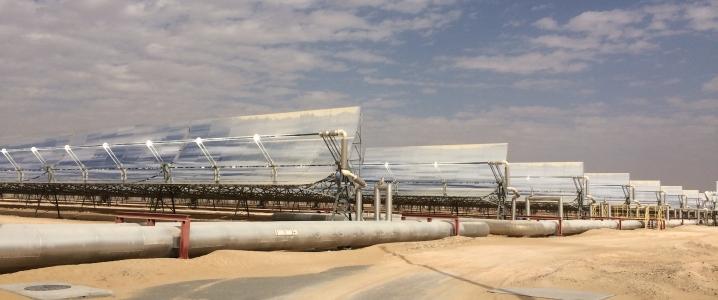Authored by Irina Slav via OilPrice.com,
The United Arab Emirates have launched the largest single solar power farm in the world, the 1.18-GW Noor Abu Dhabi, Endgadget reports citing a tweet by the Abu Dhabi government.
The world’s largest single solar plant, Noor Abu Dhabi, with a production capacity of nearly 1,177 MW commences commercial operation – a major milestone for the future of #sustainablenergy pic.twitter.com/HHVMyaMXYY
— المكتب الإعلامي لحكومة أبوظبي (@admediaoffice) June 29, 2019
The facility, which dwarfs the largest solar farm in the United States – the 569-MW Solar Star – is only comparable to solar parks, which combine several separate solar farms. It can supply electricity to 90,000 people, according to official information, from as many as 3.2 million solar panels. As a result, it would offset emissions amounting to 1 million metric tons, which is the equivalent of removing 200,000 cars from the road.
True to its reputation as being a large spender on various cutting-edge projects, the UAE is not stopping at Noor Abu Dhabi. Earlier this year, the Abu Dhabi Minister of Climate Change and Environment announced another, bigger, solar project. It would have a capacity of 2 GW, the official said without going into any further detail. The only project that would be bigger than this one, is Saudi Arabia’s 2.6-GW planned facility in Mecca.
While the Middle East is hardly the first location that springs to mind when one thinks about solar power and other renewable energy sources, the region has been changing, slowly but surely. The International Renewable Energy Agency released a report in February saying the members of the Gulf Cooperation Council alone had plans to install as much as 7 GW in renewable power generation capacity by the early 2020s.
An earlier report from IRENA said GCC could save some 354 million barrels of oil equivalent by switching to renewables for domestic consumption by 2030. That would constitute a 23-percent decline in domestic oil and gas consumption with more of the commodities going for exports: Saudi Arabia is pursuing this strategy of reducing domestic consumption of fossil fuels with a view to boosting exports.
Among the members of the GCC, the UAE is by far the best performer: it is home to almost 79 percent of the total installed solar capacity in the group. It even boasts renewable energy projects that do not require subsidies to be competitive.
via ZeroHedge News https://ift.tt/2KS9ugS Tyler Durden

